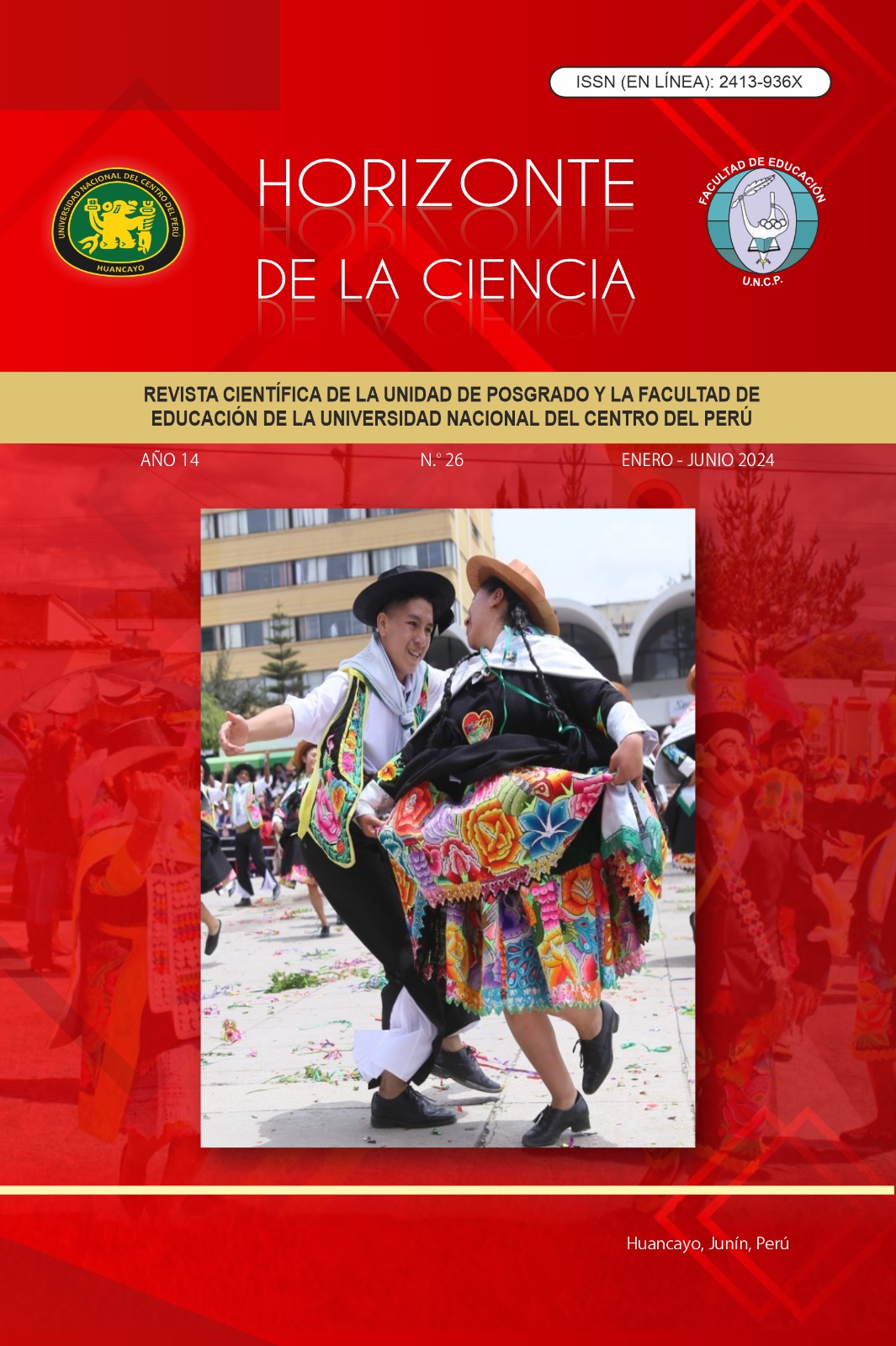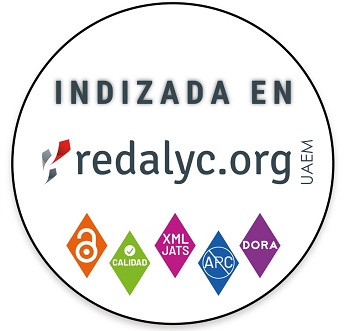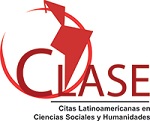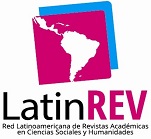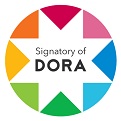MYTHS ABOUT MUSIC EDUCATION
DOI:
https://doi.org/10.26490/uncp.horizonteciencia.2023.24.1899Keywords:
Myths, Musical education, MusiciansAbstract
The myth, understood as a story transmitted within a society, attempts to explain apparently static ideas, shared by the collective. Likewise, it shapes the actions of that society towards itself and towards the outside world. The objective of this research is to analyze the perceptions of university teachers about the myths of music education. The study responds to a qualitative approach, since it analyzes its natural context, extracting and interpreting perceptible phenomena. Interviews were collected, which described routines and problematic situations, and their meaning in the lives of the participants. A total of 31 myths related to musical education were found. Finally, it is concluded that, even with the appearance of universities and musical careers, a sector of the population continues to consider this profession as something “lesser” compared to other activities, which is why it is necessary to adapt and optimize the relationship between musical teaching programs and the labor field.
Downloads
References
Avilés, M. (2017). El símbolo como ámbito de reflexión filosófica de la sociología en la educación. Sophia: Colección de filosofía de la educación, 23 (2), pp. 101-120. http://scielo.senescyt.gob.ec/scielo.php?script=sci_arttext&pid=S1390-86262017000200101&lang=es
Creswell, J. W. (1998). Qualitative Research Inquiry and Research Design. Choosing among.
https://www.eumed.net/tesis-doctorales/2012/mirm/enfoque_cualitativo.html
Díaz-Bravo, L; Torruco, Uri; Martínez, Mildred; Varela, Margarita. (2013). La entrevista, recurso flexible y dinámico. Investigación en Educación médica, vol 2, núm. 7. Julio-septiembre 2013, pp. 162-167. Universidad Nacional Autónoma de México. https://www.redalyc.org/pdf/3497/349733228009.pdf
Flores, D. (2020). Reflexiones sobre el modelo de enseñanza de la guitarra clásica en la educación superior: el caso de la PUCP. (Tesis de licenciatura). Pontificia Universidad Católica del Perú. https://tesis.pucp.edu.pe/repositorio/handle/20.500.12404/18041
Gómez, J. (2020). Percepciones de los egresados sobre la pertinencia del perfil de egreso de la carrera de música de una universidad privada peruana. (Tesis de maestría). Pontifica Universidad Católica del Perú. https://tesis.pucp.edu.pe/repositorio/handle/20.500.12404/16186
Hernández, G; Pérez, F; Trujillo, J. (2018). Mitos, ritos, utopías, idolatrías, alienación y fetiches de la educación. Debates por la historia, 6. Universidad autónoma de Chihuahua P. 193-212 https://www.redalyc.org/articulo.oa?id=655768520009
Jiménez, M; Valle, A (2015). Lo popular en la educación: Entre mito e imaginario. Praxis % saber. Universidad Pedagógica y Tecnológica de Colombia. P.35. https://www.redalyc.org/pdf/4772/477247216003.pdf
Latorre Ariño, M. (2017). Mitos o creencias erróneas de educación. Universidad Marcelino Champagnat.
https://issuu.com/uchampagnat/docs/68_mitos_en_educaci__n_-_ii
Mendívil, L. (2007) Publicado en 2016. Lo que los niños cantan, comunican y aprenden. Tesis de Maestría. Pontificia Universidad Católica del Perú. https://tesis.pucp.edu.pe/repositorio/handle/20.500.12404/6941
Montes Álvarez, Diana. (2017). El músico clásico en el Perú: entre la vocación y la profesión. (Tesis de licenciatura). Pontificia Universidad Católica del Perú.
https://tesis.pucp.edu.pe/repositorio/handle/20.500.12404/9800
Mora, J. (2018). Universidades: Mitos y tendencias. Revista Iberoamericana de Educación Superior. P.3-16
http://www.scielo.org.mx/scielo.php?script=sci_arttext&pid=S2007-28722018000100003&lang=es
Pierret, F. (1972). Mito y realidad de la Educación Musical en América Latina. Revista Musical Chilena, 26(117), p. 24–35. https://revistamusicalchilena.uchile.cl/index.php/RMCH/article/view/11334
Rodríguez, C; Lorenzo, O; Herrera, L. (2005). Teoría y práctica del análisis de datos cualitativos. Proceso general y criterios de calidad. Revista Internacional de Ciencias Sociales y Humanidades, SOCIOTAM, vol. XV, núm. 2, julio- diciembre, 2005, pp. 133-154. https://www.redalyc.org/pdf/654/65415209.pdf
Sanchez Prieto, Guillermo. (2008). Desarrollo del talento. Gestión del mito: cómo atraer y conservar el talento de fábula. Universidad Pontificia de Comillas. ICAI – ICADE. https://repositorio.comillas.edu/rest/bitstreams/30286/retrieve
Wilson, J; Brown, D; Haning, M; McGinnis, E; Royston, N (2021). Contributions to Music Education Columbus Tomo 46, (2021): 109-131.
https://www.proquest.com/openview/84cbf93935c7e1f95c0fe37b4ddec32d/1?pq-origsite=gscholar&cbl=25603
Downloads
Published
How to Cite
Issue
Section
License

This work is licensed under a Creative Commons Attribution-NonCommercial 4.0 International License.

